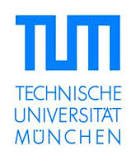Accommodation
We do not provide on-campus housing. However, exchange students can apply for a room in student hall of residence, which is run and administrated by the Studentenwerk (Student Services Organization). Upon receipt of the letter of acceptance from the GSO, exchange students should apply for student accommodation within the deadline period. More information and housing application forms can be found on the website






RMIT at TUNGSO
Check out what RMIT students are doing at TUNGSO
Your say